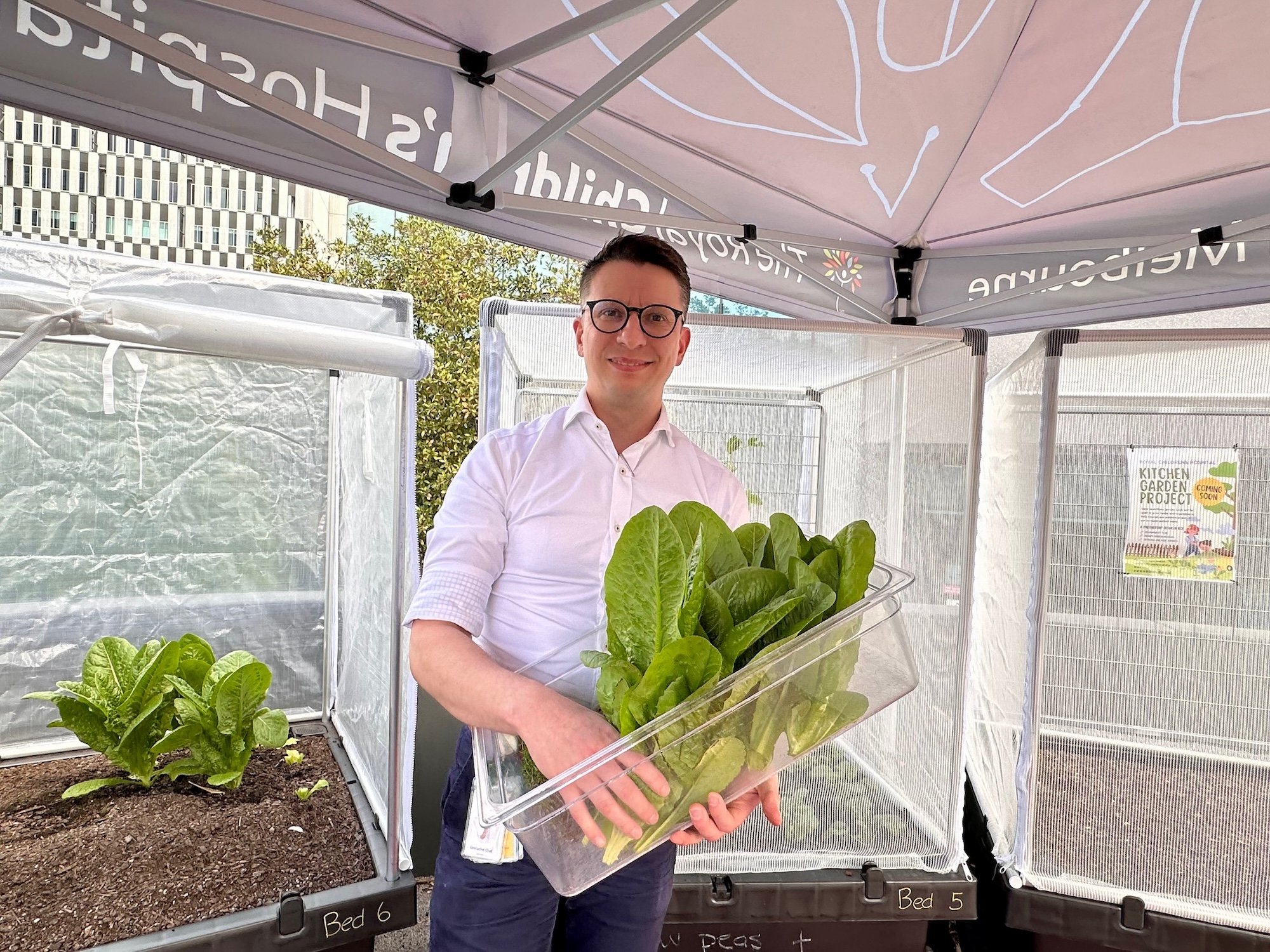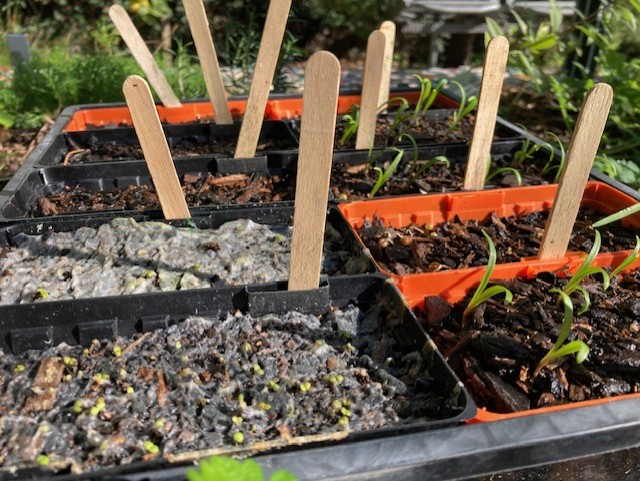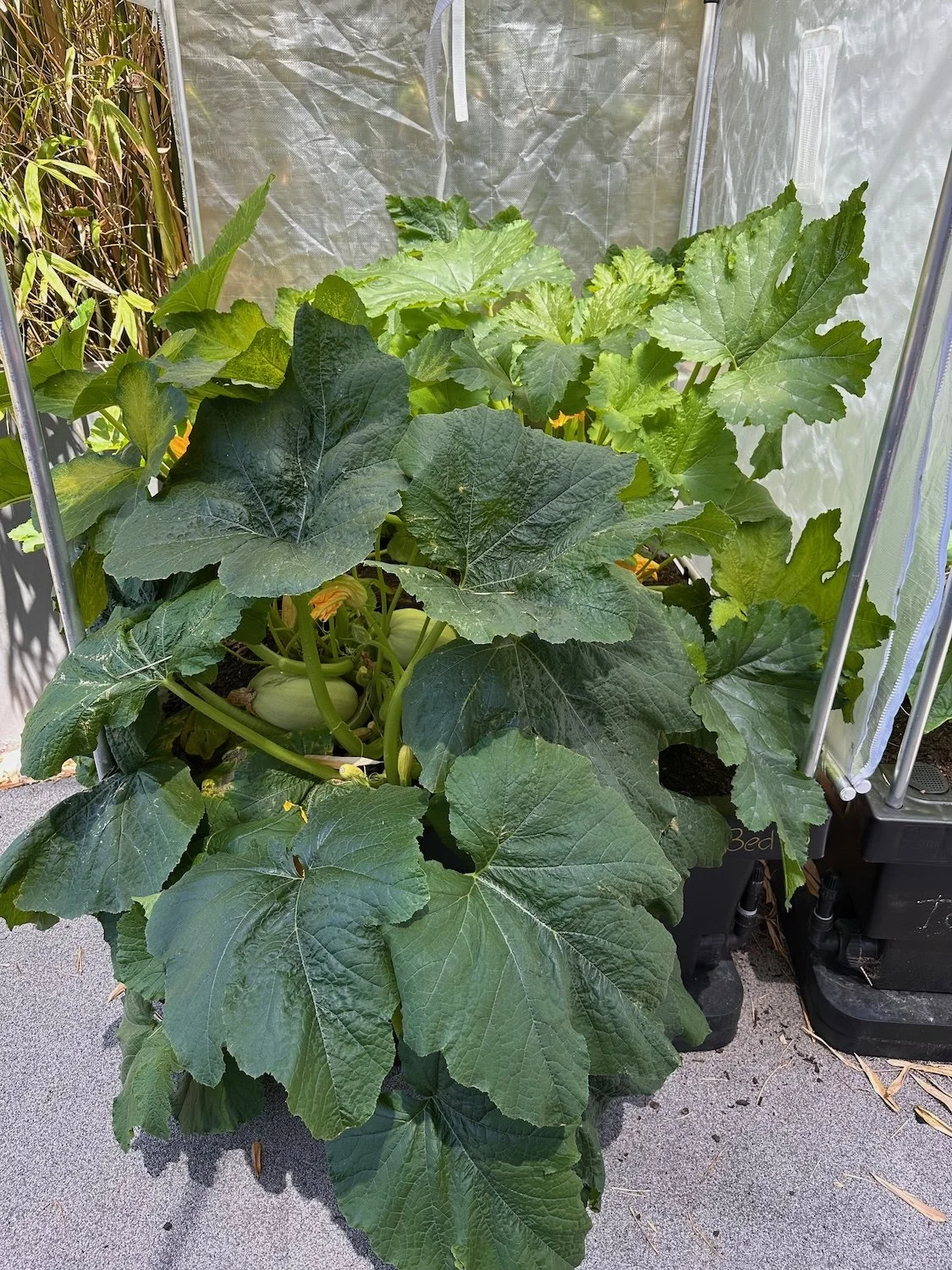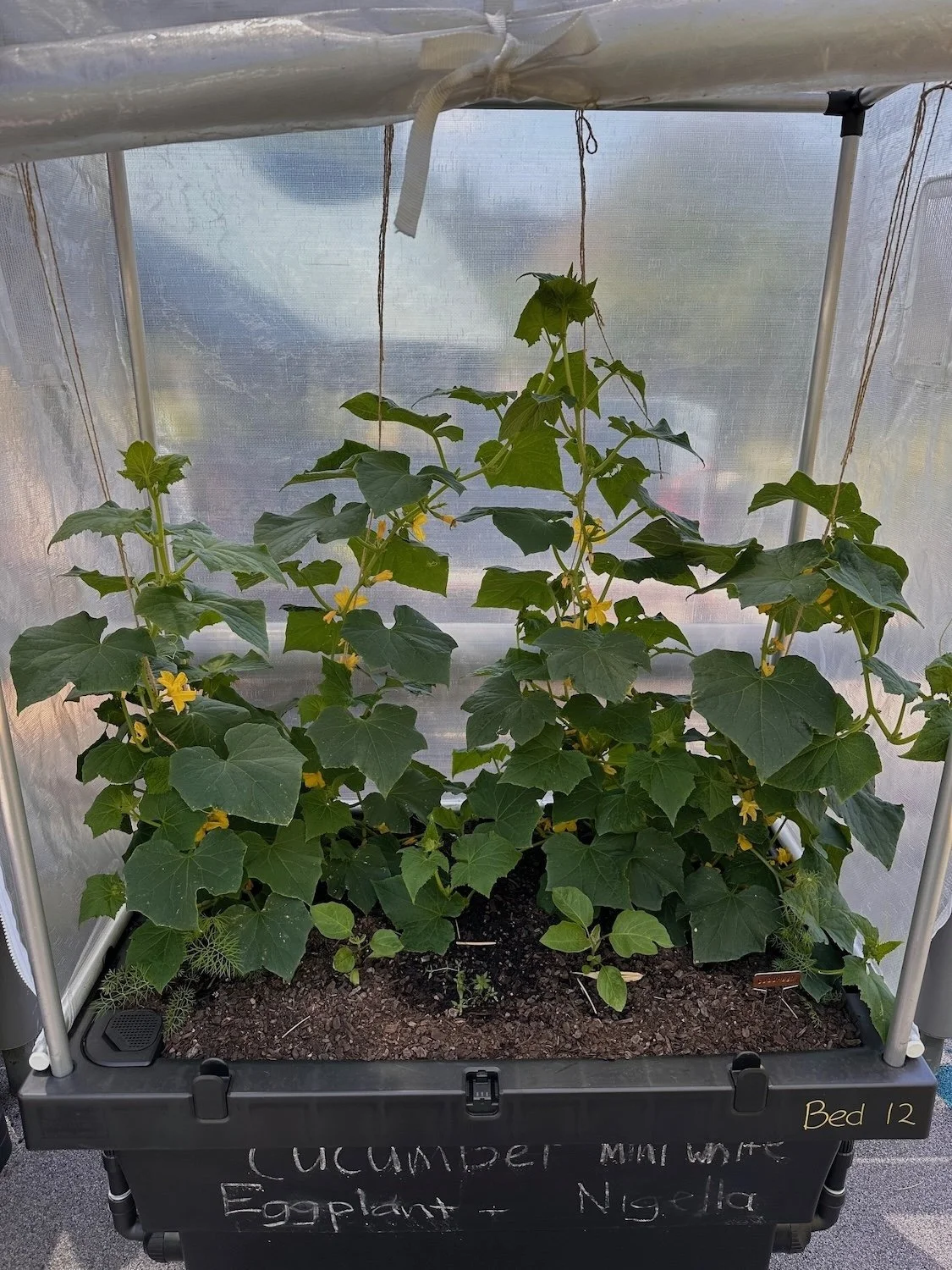
Healthcare sustainability in action at Royal Children’s Hospital
Sustainability is increasingly a focus for health and aged care organisations, with the current state of play showing there is much work to be done in this area.
Healthcare contributes more than 4.4 per cent of net global greenhouse gas emissions – if it were a country, the industry would be the fifth largest polluter on the planet.
Andrei Kononov - Executive Chef at Melbourne’s Royal Children’s Hospital
This statistic was the opening salvo in the IHHC Conference presentation on Sustainability in Healthcare Hospitality presented by Andrei Kononov, who has been Executive Chef at Melbourne’s Royal Children’s Hospital for the past two and half years.
Andrei makes the point that food and agriculture account for between 25-33 per cent of all global GHG emissions, with food waste alone contributing six per cent – and that hospitality in healthcare sits at the crossroads of both industries, and therefore has a big part to play in the overall solution to the climate crisis.
Andrei is passionate about sustainability and describes moving into the healthcare sector after his previous role as Executive Chef for Zoos Victoria as a big eye-opener.
“They were a leader in conservation and sustainability, and in my role looking after the culinary teams at Melbourne and Werribee Zoos I got to see what’s possible in that space and was exposed to some of the best practices,” Andrei says. “When I transitioned into healthcare it was like coming into a different world. I tried to bring some of that sustainability mindset into what we do, and what I initially found was that the focus was more around patient safety and operational safety – which is completely understandable, but it can create a reluctance to change.
“Obviously we have to consider patient risk and the sensitive nature of healthcare work but there is also sometimes an attitude of ‘this is the way we’ve always done it, why can’t we just keep on the way we’re going?’ And this can lead to a resistance against moving toward reusable solutions, which manifests almost across the board from linen services, to when and when not to wear gloves, to disposables vs reusables in kitchens.
“the key to achieving real and substantial change is to first create a strong culture of sustainability within the healthcare organisation”
“To give one example of how this plays out, when I think back to when the plastic bans were being introduced in Victoria, there was immediately a lot of talk about how healthcare organisations could get exemptions. We also hear a lot of talk about budgets – that healthcare organisations are here to deliver a service and they don’t have the budget to invest in sustainability initiatives. But in fact there is often a case to be made that these initiatives will result in greater cost efficiencies and sometimes they are cost-neutral to implement, so we need to raise awareness around that.”
Andrei says the key to achieving real and substantial change is to first create a strong culture of sustainability within the healthcare organisation – and this is the case at Royal Children’s Hospital, which has its own Sustainability Committee and has started building a network of ‘sustainability champions’ which it promotes in its internal communications.
The RCH is also a member of Global Green and Healthy Hospitals (GGHH), an organisation dedicated to sustainability in the healthcare sector.
Since joining RCH as Executive Chef, Andrei has been able to spearhead several important sustainability initiatives, first of which was the introduction of a Cookers bulk oil delivery system – which he emphasises was a cost-neutral implementation.
“I’ve put these systems into almost every kitchen I’ve worked in over the past 10 or so years – it makes common sense and logistical sense in that it ticks so many boxes. You get rid of the OH&S risks associated with people having to lift heavy oil drums and pour oil into the deep fryer, as well as the issue around getting rid of used oil, which is notoriously difficult to compost or otherwise deal with at the end of its life. Instead you fill your fryer from a pump connected to an oil container and you use something akin to an industrial vacuum cleaner to pump out the used oil into another container. The used oil is regularly taken away and onsold to a company which turns it into biofuel, so closing off that loop in the sustainability chain.”
Another sustainability initiative which Andrei helped initiate was the establishment of the RCH Kitchen Garden.
“I had wanted to introduce kitchen gardens since I’d worked in fine dining a decade or so earlier – I love the idea of being able to grow your own ingredients outside and then use them in the food.”
“That was actually an idea that grew out of the 2022 IHHC Conference in Brisbane, where I saw the Vegepod gardens on display at the trade expo,” Andrei recalls. “I’d been at RCH for about three months at that stage and I really wanted to immerse myself in healthcare hospitality, so this caught my eye. I had wanted to introduce kitchen gardens since I’d worked in fine dining a decade or so earlier – I love the idea of being able to grow your own ingredients outside and then use them in the food. I see it as helping to build a culture of sustainability as well as reconnecting with where food actually comes from. It’s also about trying to reduce food miles and put freshness first.
“When I saw the Vegepods my immediate thought was that this was something we should be using, because the entry cost is relatively low – but my next thought was how can we actually implement this as a longterm project, because I’m the first to admit I’m a terrible gardener!
“What happened was the concept grew over the next couple of years as we partnered with our Therapy Gardening Program at RCH. We’re lucky to have these outdoor spaces where patients are able to go out and interact with nature, so it became a joint project with a sustainability component as well as a patient wellness component.
“We decided to create a space which was open and interactive, so we have these outdoor kitchen gardens where there are tables and benches set up so patients and staff can gather in the space and interact with the produce. This has proven beneficial for patients who have trouble with their appetite or with eating. Just being able to have conversations around the herbs and vegetables we’re growing – and the patients being able to touch, smell and taste the produce – is a lovely connection with the broader sustainability piece around our use of these ingredients in our menus.
“I’m under no delusion that we’ll be able to grow industrial amounts of broccoli, but it has proven a successful pilot project in that we’re growing zucchinis, tomatoes, cucumbers and a range of herbs and we’re able to use them in patient meals.”
The project took four weeks from initial quotes to Andrei and one of the therapy gardeners building the beds on site. “We found a bit of money and we thought, let’s get this off the ground and see how it goes. The pilot program has proven a great success so we’re now looking at expanding it, as it’s starting to become a real talking point around the organisation – which is allowing us to promote other sustainability initiatives through our Sustainability Committee. The staff love that we have fresh produce growing in the garden and they can see it while they’re sitting out there having lunch.”
RCH is currently in the process of implementing a food waste initiative, as Andrei explains: “One of the first things that struck me when I started was that I’d gone from an organisation where we had an organic compostables waste stream and a soft plastics waste stream, to one with a commingled recycle stream. So we started looking at our organic waste fairly early on.
“The reality of any kind of catering business, whether in retail or healthcare, is there’s always going to be some organic waste – we can try to minimise it, but the fact is consumers and patients don’t necessarily eat their entire meal. So we looked at some onsite options which turned out to be prohibitively expensive – it’s a large capital expenditure outlay and involves facility management, so the preference was to go offsite.
“The other reason to do that is you’re then able to scale it – in my experience, once you start diverting food waste or look at composting, the organisation tends to get better at it the longer you’re doing it. You might start off diverting 150kg a day but as you get better, that scales up – so we didn’t want to lock ourselves into a process where we couldn’t be flexible.
“We’ve chosen to partner with Bardee, because they’re able to take packaged foods, and we didn’t want our team to have to depackaging everything. They also offer scalability and it means we have a running cost as opposed to a capital outlay – plus there’s value at the end because they’re creating fertiliser and protein enrichment products out of the waste, while providing jobs for workers who might otherwise have difficulty finding employment – so again, our choice ticked a lot of boxes. We think they’re good corporate citizens in general and they have a business plan with some substance to it. So we have submitted a business case and we’re hoping to move ahead with this within the next three to six months.”
A further initiative in the works is one relating to food rescue, which Andrei says is a more complex issue to tackle. “We are still working our way through the issues around infection control, which is a necessary concern for every healthcare organisation. We’re making a point of reaching out to other healthcare providers around the country who’ve achieved success in this area so we can take advantage of shared learnings as to how they got their solution across the line and how they managed those infection control risks.”
A common thread with these initiatives is the need to be fiscally responsible, as Andrei affirms: “Typically we can demonstrate a cost efficiency or the project is cost-neutral to implement, but the fact is that taxpayer dollars are being spent so we have a fiduciary duty to ensure the decisions we’re taking are backed by sound financial reasoning.
“I also think it’s important to remember that it takes an organisation-wide culture of sustainability to achieve these goals. When you spend a lot of time in the sustainability space, you can get to a point where you start getting disheartened by the barriers and challenges to getting certain projects off the ground. This is where it’s important to network with others who are equally passionate about sustainability, so we can keep each other motivated and prop each other up to work through the challenges together.
“Whether do anything or not, we’re going to wake up in a very different world in 10 or 20 years from now. It can either be a world that changes around us, or one that we reshape to be a better place.”






















